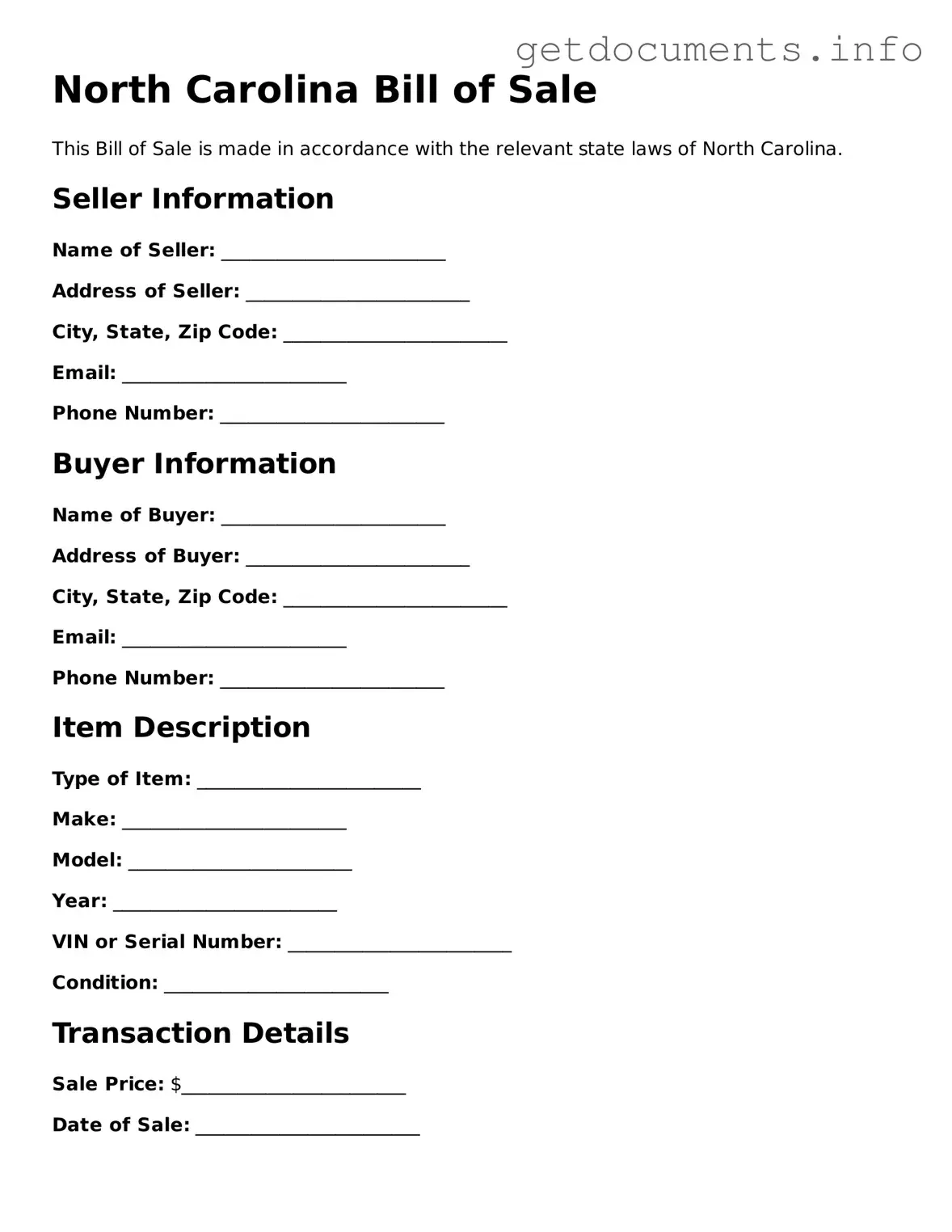Free Bill of Sale Template for North Carolina
A Bill of Sale is a legal document that serves as proof of the transfer of ownership of personal property from one party to another. In North Carolina, this form is essential for both buyers and sellers, ensuring that the transaction is documented and recognized under state law. Understanding the specifics of this form can help facilitate a smooth exchange of goods and protect the interests of all parties involved.
To complete your transaction, fill out the Bill of Sale form by clicking the button below.
Access Bill of Sale Editor

Free Bill of Sale Template for North Carolina
Access Bill of Sale Editor
Got places to be? Complete the form fast
Fill out Bill of Sale online and avoid printing or scanning.
Access Bill of Sale Editor
or
⇩ PDF File
